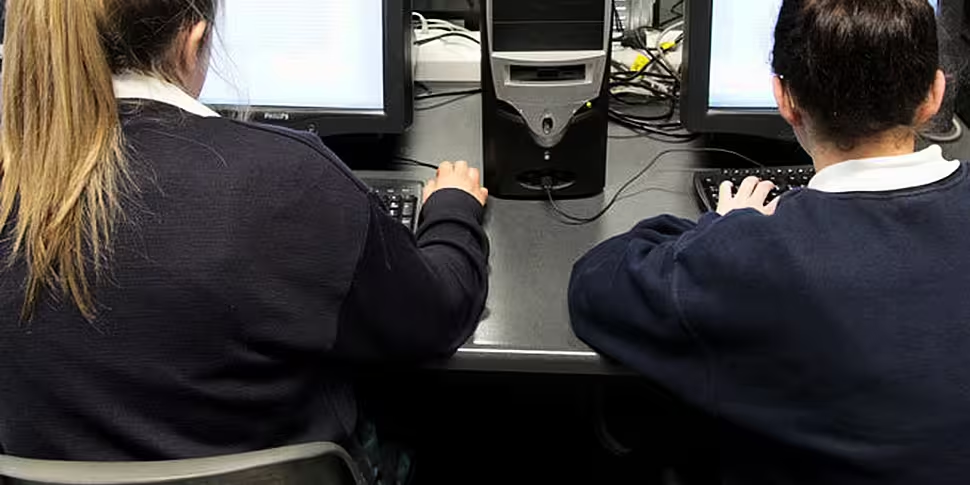Teachers and principals have been urged to take greater action to prevent homophobic bullying after a new survey showed young people want more attention to be focused on the treatment of lesbian, gay, bisexual and transgender students.
The second annual Student Attitudes Index from the Studyclix.ie website found that 39% of Irish secondary school students agree LGBT students need to be better protected in schools.
Declan Meehan of ShoutOut, a voluntary group that runs anti-bullying workshops in schools nationwide, said homophobic and transphobic abuse remains a problem despite changing attitudes to LGBT issues.
Research in Ireland has shown that LGBT teenagers are far more likely to attempt suicide than others. A study by ShoutOut in 2012 found that 67% of all students have witnessed homophobic or sexuality-based bullying in school.
“Even with greater awareness, we see a problem in schools where homophobia is ingrained into social relationships,” Meehan said.
“Homophobic language - saying things like ‘that’s so gay’ - is still common and bullying goes unchallenged in many cases."
Former education minister Ruairi Quinn issued new procedures on preventing homophobic bullying in schools back in 2013.
However, LGBT issues are seldom discussed in classes and as part of the curriculum, according to Meehan, who said many students the group works with find anti-bullying workshops to be a “huge culture shock” initially.
“We see litter awareness and anti-bullying weeks in schools every year, but LGBT awareness weeks are rarely run,” he said.
Increasing numbers of young people will be comfortable identifying as LGBT in schools over the coming years, he added, meaning more teachers need to receive specific instruction on dealing with homophobic bullying.
LGBT bullying, he said, is "the great unspoken issue" in Irish schools.
Cyberbullying
The Studyclix.ie study also found that 36% of students feel schools should to do more to stop bullying in general.
A further 58% of students said schools should be responsible for stopping bullying, while 40% thought it is up to online moderators and companies.
Teacher and Studyclix.ie founder Luke Saunders said bullying among young people is no longer confined to the schoolyard.
“Cyberbullying has meant that as a teacher you could find yourself dealing with an issue that involves multiple students across multiple schools using multiple social media platforms, each of which you have no control over,” he said.
Rebecca Dempsey of the Irish Second-level Students' Union said young people can often be unsure of who to speak to about bullying at school.
"Most students wouldn't be comfortable approaching a principal or senior management figure. Some would go to guidance counsellors, but we have fewer of those now because of cutbacks," she said.
The Association of Secondary Teachers in Ireland (ASTI) told Newstalk.com that anti-bullying guidelines are “quite clear” on the steps schools need to take to protect students.
New policies issued in 2013 set out specific requirements for addressing all forms of bullying, including cyberbullying and bullying of LBGT students, the organisation said.
“The procedures are categorical in stating that schools alone cannot counter bullying behaviour,” it added.
“Parents are powerful role models in their children’s lives and must work with schools in responding to incidents of bullying...
“Schools acknowledge that countering bullying is always challenging, especially in the context of cyber bullying which is viral and frequently anonymous.”
The teachers’ union added that the most recent report from the chief inspector of schools indicates the issue is being addressed, with 71% of students saying they were satisfied with the way their school handles bullying.
A further 91% of parents said their child feels safe and well looked after in school, it pointed out.
The Studyclix.ie survey asked 2,001 secondary school students - 68% female and 32% male - about issues including financial security, social media and politics.
Among its other key findings were that:
- 52% of students say it is unlikely or highly unlikely that they will be able to purchase a house in their home county when they begin working
- 50% think it is unlikely or highly unlikely that they will end up working in their home county when they finish their education.
- 76% use a smartphone to study and 56% feel social media has affected their schoolwork
- Snapchat has overtaken Facebook as the most used app among students, with 90% having a registered account









